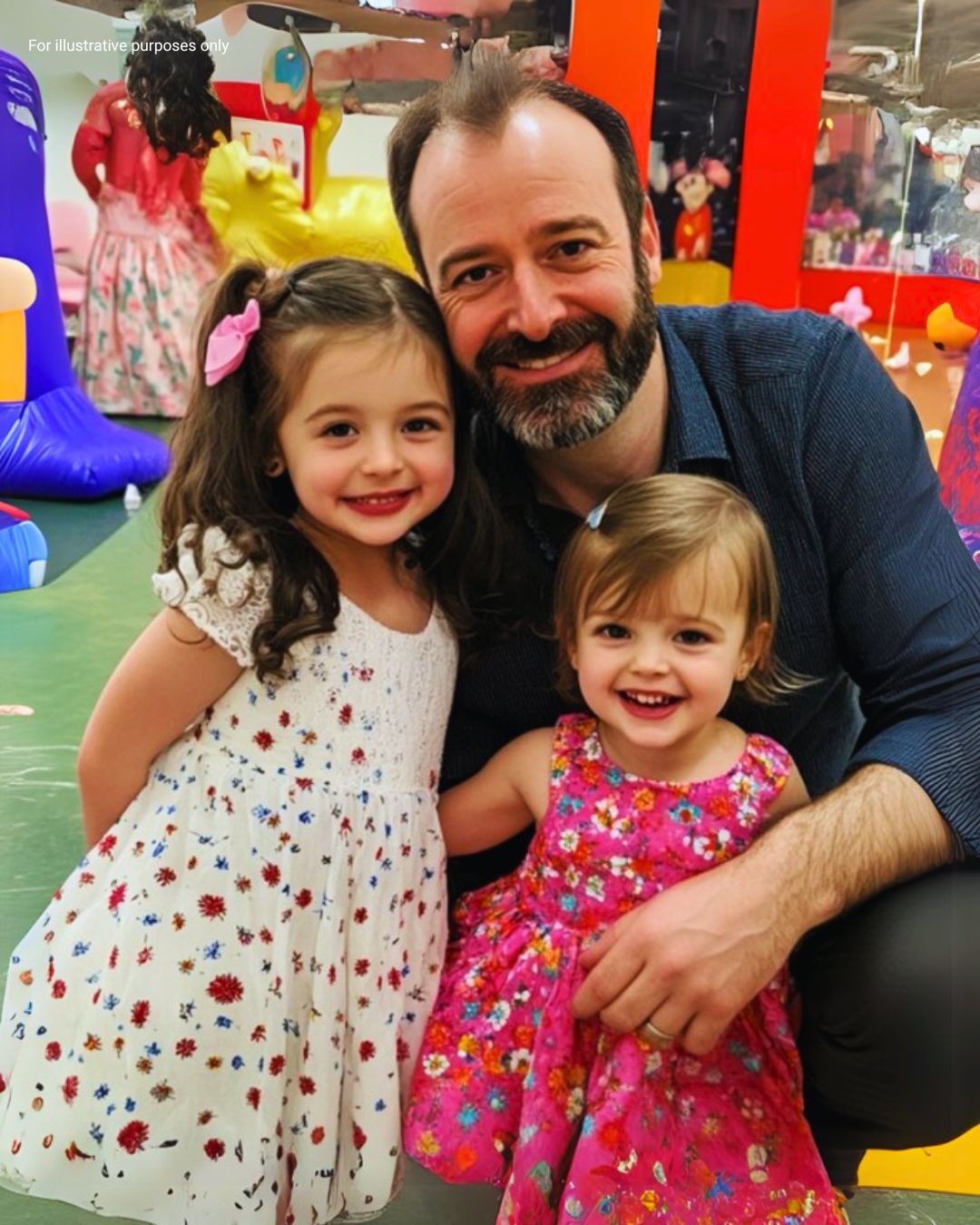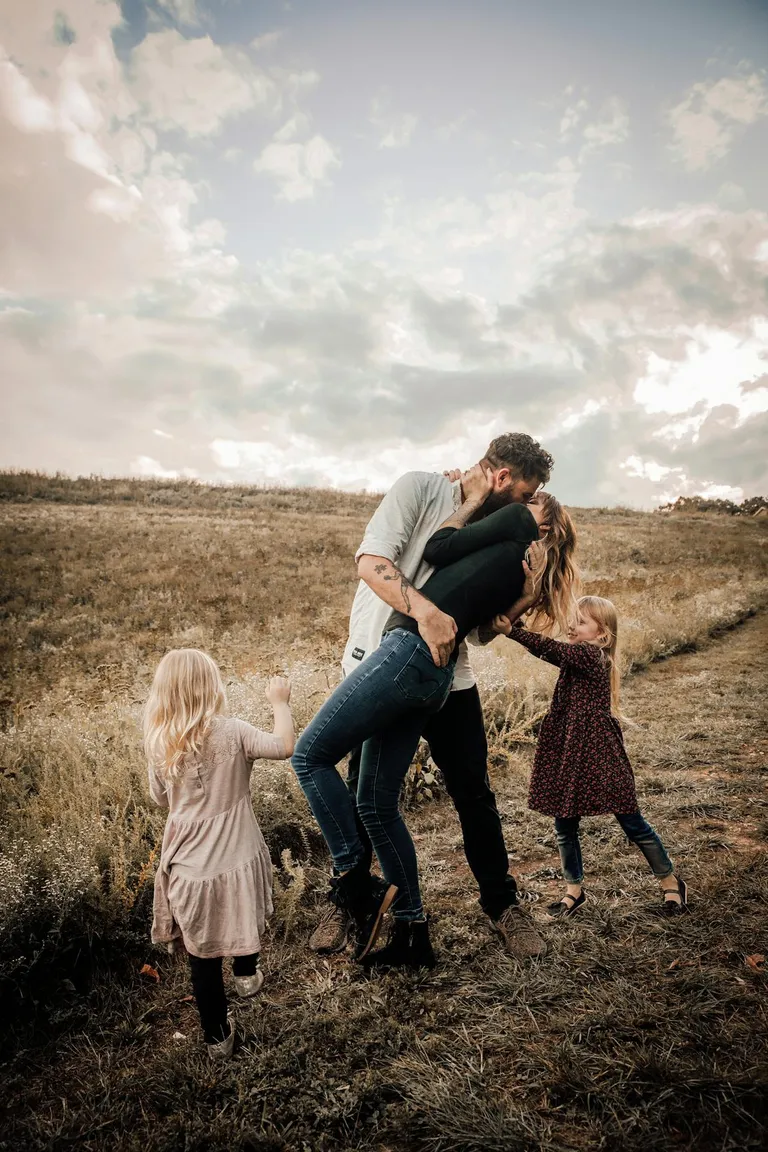Miranda left our family behind—me, her husband of ten years, and our two little girls, Sophie and Emily—for what she called a “better life.” She chased wealth, freedom, and happiness with a rich man, leaving us with broken hearts and unanswered questions. Two years later, I saw her again, and the encounter was nothing short of poetic justice.

You never think someone you’ve shared a decade with can become a stranger overnight. Life wasn’t perfect, but it was ours. We had built a home, a family, and a life that, by most accounts, seemed stable. I worked hard to provide, earning enough to keep us comfortable. We weren’t wealthy, but we made time for vacations, celebrated milestones, and supported each other—or so I thought.
Miranda worked as a freelancer, and we had a part-time nanny to help with Sophie and Emily, who were just five and four. I made sure she didn’t feel burdened by the housework. I cooked, cleaned, and did the grocery shopping, all while working full-time.
But over time, something changed.
She started spending hours on her phone, texting late into the night. When I asked who she was talking to, she’d brush it off. “Friends,” she’d say quickly, her tone defensive. Her social media became a window into a life that didn’t include us—photos of her smiling at coffee shops, carrying shopping bags, and hanging out with friends I’d never met.
At home, she was distant. The warmth in her eyes when she played with Sophie and Emily had faded. “Not now, sweetie,” she’d say dismissively when the girls asked her to join their games. Even between us, the spark was gone. The late-night talks, the laughter, the intimacy—it all disappeared.

Then one day, as I walked into the kitchen, she turned to me and said, “I’m leaving, Charlie.”
The words hit like a slap. “What are you talking about?” I asked, trying to comprehend.
“I can’t do this anymore,” she said, her voice cold and detached. “I’ve found myself, and I know what I want. I need freedom. I need to be happy.”
“We have two kids, Miranda!” I pleaded, my voice cracking.
She sighed impatiently. “You’ll manage. You’re a better parent than I’ve ever been. Sophie and Emily will be fine with you.”
Her words were a knife to the heart. “What about us? The life we built together?”
“It’s not enough for me anymore,” she said, grabbing her suitcase and walking out the door.
That night, Sophie tugged at my sleeve. “Daddy, is Mommy mad at us? Is she coming back?”
I couldn’t bring myself to answer. How do you explain to a five-year-old that their mother chose to leave?
The weeks that followed were a nightmare. I barely ate, barely slept. My daughters’ innocent belief that their mother would return was a constant reminder of what she’d done. Calls from friends and family asking “What happened?” felt like daggers to my already broken heart.
Then one day, I saw her on Instagram. Miranda was glowing, wearing a designer dress, sipping champagne on a yacht beside a man named Marco. Post after post showcased their glamorous life—trips to Paris, lavish dinners, sunsets on pristine beaches. She looked like she didn’t have a care in the world, while I was trying to pick up the pieces she’d left behind.
But life has a way of moving forward, even when it feels impossible. I poured everything I had into raising Sophie and Emily. We created new traditions—pancake Saturdays, dance parties, bedtime stories—and slowly, we rebuilt our lives.
Two years later, I’d almost stopped thinking about Miranda. Then, one ordinary evening, I saw her again.
I was at the grocery store, grabbing snacks for the girls, when I spotted a familiar figure. At first, I wasn’t sure it was her. She looked different—her hair was unkempt, her clothes wrinkled, and her face was pale and tired.
“Miranda?” I called out.
She froze, clutching a bag of carrots. Without a word, she turned and hurried toward the exit.
The next day, she texted me. “Let’s meet. Tomorrow. 6 p.m. At the park.”
When I arrived, I found her sitting on a bench, fidgeting with her hands. Gone was the glamorous woman from Instagram. She looked worn down, like someone carrying the weight of the world.
“Charlie,” she mumbled when I approached.
“What happened to you?” I asked, sitting down.
Her voice cracked. “Marco was a fraud. He wasn’t a wealthy businessman. He drained my savings, spent my inheritance, and left me with nothing.”
I stared at her, stunned. “You left your family for him?”
Tears streamed down her face. “I thought he loved me. I thought I was finally free. But it was all a lie.”
“And what about us?” I asked, my voice hardening. “The life you threw away?”
“I regret it every day,” she whispered. “I want to come back, Charlie. I want to fix things. I want to see the girls.”
Her words hung in the air, but my mind was racing. I thought of the nights I’d stayed up with Sophie and Emily, comforting them as they cried for their mother. I thought of the life we’d built without her.
“No, Miranda,” I said firmly. “You made your choice, and now you have to live with it. The girls and I have moved on. They’re happy, and I won’t let you disrupt that.”

She broke down, pleading, but I stood my ground.
When I got home that evening, Sophie and Emily greeted me at the door, their giggles filling the air. “Daddy, can we make pancakes?” Sophie asked.
“Of course we can, princess,” I said, pulling her into a hug.
As I stood in the kitchen, flipping pancakes, I realized I felt something I hadn’t in years: peace.
Miranda thought freedom was abandoning us for a fantasy, but she didn’t understand what real happiness looked like. I did. And for that, I was grateful.
Karma had done its work, and I had no regrets.
This work is inspired by real events and people, but it has been fictionalized for creative purposes. Names, characters, and details have been changed to protect privacy and enhance the narrative. Any resemblance to actual persons, living or dead, or actual events is purely coincidental and not intended by the author.
